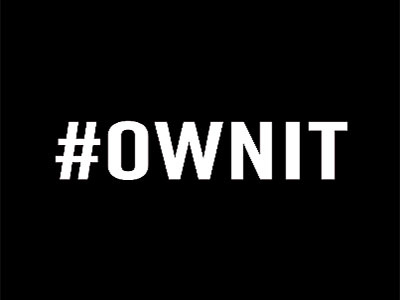Ownership is a grossly overused word in meetings in the corporate world. My assessment is that while people think they understand the meaning of this word, the comprehension of the real meaning, I believe, is at best broad and lacks depth. This post will introduce you to the important elements of taking ownership.
As always, coming from the world of generative leadership, we begin with the ‘what is’ question first.
What is Ownership?
Simply put, ownership is doing what owners would do.
So, when you take ownership of something, you do what the owner of that something would do. For example, you would do what the owner of the business would do; or you do what the owner of the project would do; or when you take ownership of someone else’s house, lets say as a tenant, you would do what ever the owner of the house would do.
There are certain things that owners do naturally. They do not have to be told what to do. Similarly, if you take ownership of something, you are expected to ‘do’ what the owners would otherwise do naturally.
Here are the 4 important elements of taking ownership
Owners are the cause in the matter:
Owners take responsibility. To be responsible is to take the posture that you are the source or cause of something, and the outcomes can be shifted by your actions. Taking responsibility is making the interpretation that when you assess something isn’t working, you provide what is missing to make it work. This puts you in the posture of producing action, not waiting for action.
It puts you in the posture of being a leader. You may not know what to do, but in this posture you will find out, or invent what is needed. If you wait for others, or act only if you know what to do, you become a victim, and tranquilize yourself with the reasons for your inaction and your lack of performance.
Owners listen for breakdowns:
The first thing that owners do is listen for possible breakdowns, such as, are we delivering as per our promise; are we on schedule; is the job being done the way it is meant to be done; are people performing; will we meet our deadlines; and so forth.
While it is extremely important to listen for possible breakdowns, it is not enough.
Owners declare breakdowns:
The common sense understanding is ‘declaring breakdowns is not good’. That is a myth. Owners listen for possible breakdowns and when they ‘see’ one coming, they declare a breakdown. Simply stated, declaring a breakdown in this context means if things continue the way they are going, and no change is brought forth, our promise will not be kept.
Owners declare a breakdown and state that where we are headed is not where we want to go. Owners create and choose where they want to go and change actions to get there.
Owners seek support and make offers:
Many times owners cannot take actions on their own. At such times, owners make effective requests to others who they believe can take actions to change course of the result.
Similarly, in my experience with consulting organisations, I have seen some young employees taking true ownership by listening for breakdowns, declaring breakdowns to their line managers, and where necessary making proposals for new actions. When taking ownership, if you make an assessment that someone is not doing or not doing well what needs to be done, the owner makes an offer of support.
This post is an invitation for you to take ownership in areas that matter to you. Identify areas where you are claiming to take ownership, but are not really taking on ownership. Also identify areas that you would like to take on ownership at work, at home, or in your social environment.
When you take ownership is when you really play the game. That is when you get off the stands and get on the court to play.
Enjoy the game!
Sameer Dua, Founder Director, Institute for Generative Leadership, India
Schedule a Conversation
Please help us with your details.




